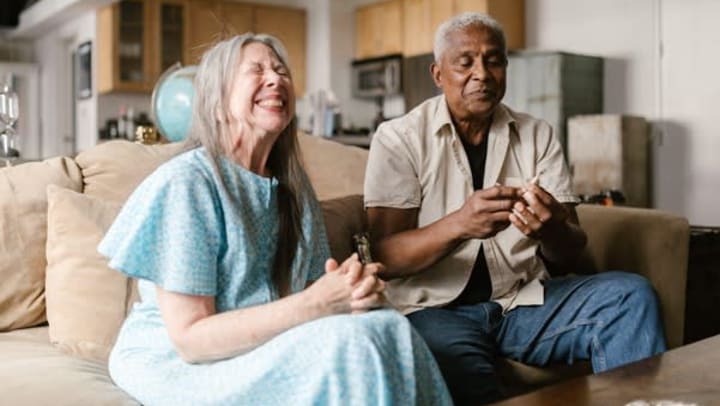The role of healthy food is magnified in our golden years. In fact, government resource Medline explains that the correct diet can address diseases like osteoporosis, high blood pressure, heart disease, diabetes, and certain cancers. However, the interest in eating wanes with age. So, if you're looking to make the meal prep process easier, and the dining more enjoyable for your elderly loved one, here are some tips:
Ensure sufficient calories and nutrients
The more advanced in age a person is, the more important every calorie is. Depending on their health and lifestyle, you’ll want to prepare meals that can energize them, not trigger any underlying issues, and fulfill their daily nutritional needs. Therefore, it’s better to serve a balanced diet rich in calcium, fiber, and Vitamins D, B12, and C. These vitamins and nutrients are some of the most essential for senior wellness and can be found in food like fatty fish, leafy greens, and fortified dairy. If in doubt, you can always ask for a nutritionist or primary physician’s recommended menu. This can also include specific amounts for each food and drink that a senior can consume, so that’s less guesswork on your end.
Consider their physical capabilities
You’ll also need to consider how physically able the senior is. Up to 68% of seniors have dysphagia, which can make swallowing hard. At the same time, nearly one in five have lost some of their teeth. Both factors indicate that softer food is safer to consume. On top of this, you'll need to consider that the National Council on Aging’s list of senior chronic diseases includes arthritis. This means that you may want to pre-cut certain foods to address grip issues. Overall, the easier food is for seniors to eat, the less they’ll find eating tiresome. This way, they can focus less on the need to nourish themselves and more on enjoying their meal.
Verify dietary restrictions with family
Even if the older adult in your care has a medical history file, it’s still best practice to double-check with their family. Over 72% of seniors have dementia, so they might not be able to independently express more nuanced dietary restrictions. For instance, their family may have a strict preference for Kosher or Halal. Alternatively, they may have an obscure food allergy. If you’re a caregiver working in a senior community, your healthcare administrator or director can help you contact the family. In Americare Senior Living, each community has a Pandemic Coronavirus/Influenza Response Coordinator who can safely connect loved ones with carers and patients, regardless of restrictions.
List resources for busy days
Caring for a senior can be hectic, especially when they suffer from multiple conditions. In preparation for these inevitable instances, have a list of trusted food resources ready. These can include the patient’s family, an online grocer, and a food delivery service. In a matter of hours, all of these can help you prepare delicious and nutritious meals. In SymptomFind’s feature on senior meal delivery services, they explain that some subscriptions are specifically tailored for older adults’ nutritional needs and living situations. This means you can easily find one that either delivers ready-cooked meals, pre-portioned raw ingredients, or a box of groceries. When you consider this option, don’t hesitate to ask each service what their subscription terms are. Some carers may only need occasional deliveries, while others may need them more regularly.
Make mealtime a social activity
Mealtime for seniors does more than nourish their bodies — it can also improve their mental health. Surveys show that one in five seniors feel their loneliest when dining alone. According to the Health Resources & Services Administration’s coverage of the loneliness epidemic, loneliness in seniors can be as harmful as smoking 15 cigarettes a day. So, it’s important to consider the social aspect of dining for senior meals, too. In a recent study, 85% of seniors said that they found meals more satisfying when enjoyed with others. Depending on your living situation, you can make sure to eat with your patient or you can plan shared meals with others. This will help them view meals as more enjoyable rather than simply functional.
Eating well as a senior can largely influence the quality of living. By taking an older adult’s holistic experience into consideration, carers can develop a system that is more efficient and effective for an older adult’s wellbeing.
Article made for americareusa.net
By Helen Booker




